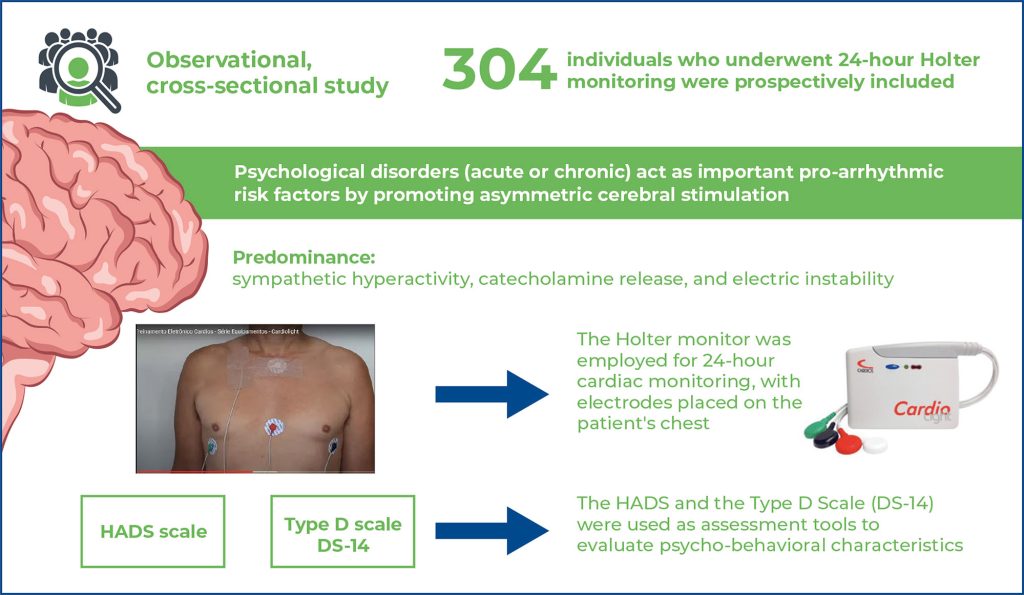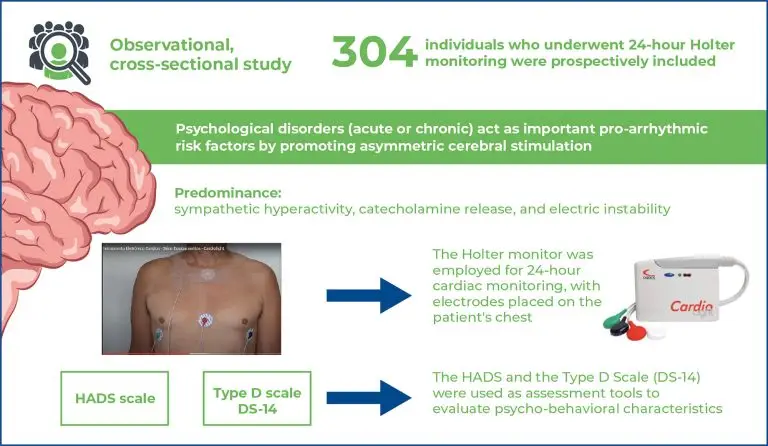einstein (São Paulo). 14/Mar/2025;23:eAO0742.
Is self-perception of cardiac symptoms related to the psychological profile of patients? A cross-sectional study of individuals undergoing 24-hour Holter monitoring
DOI: 10.31744/einstein_journal/2025AO0742
Highlights
■ Self-reported cardiac symptoms not associated with arrhythmias.
■ High prevalence of anxiety and depression symptoms.
■ Anxiety was correlated with self-reported cardiac symptoms.
ABSTRACT
Objective:
This study aimed to examine the presence of psychological characteristics and their association with self-reported cardiac symptoms in individuals undergoing 24- hour Holter monitoring.
Methods:
This observational cross-sectional study included 304 individuals who consecutively underwent 24-hour Holter monitoring. Clinical, demographic, and electrocardiographic data were collected. Psycho-behavioral characteristics were assessed using the Hospital Anxiety and Depression Scale and the Type D Scale. Logistic regression models were employed to examine associations between cardiac symptoms and anxiety, depression, distress, and Type D personality traits. Statistical significance was set at p<0.05.
Results:
Anxiety, depression, distress, and type D personality traits were observed in 42.7%, 15.1%, 26.3%, and 19% of the participants, respectively. Logistic regression analysis revealed a significant association between the perception of cardiac symptoms and both mild anxiety (odds ratio (OR) = 2.305, 95%CI= 1.098-4.841, p=0.027) and severe anxiety (OR = 9.245, 95%CI= 1.582-54.013, p=0.014) scores. No significant association was found between depression, distress, or Type D personality traits and an increased perception of cardiac symptoms.
Conclusion:
A high prevalence of anxiety was observed among individuals undergoing 24-hour Holter recording. Anxiety was significantly associated with self-reported cardiac symptoms, though not with the presence of arrhythmias. The findings could have practical implications for clinical practice. The study suggests that patients reporting anxious palpitations should receive a more thorough cardiological assessment, with 24-hour Holter monitoring serving as an effective tool for this evaluation.
[…]
112



